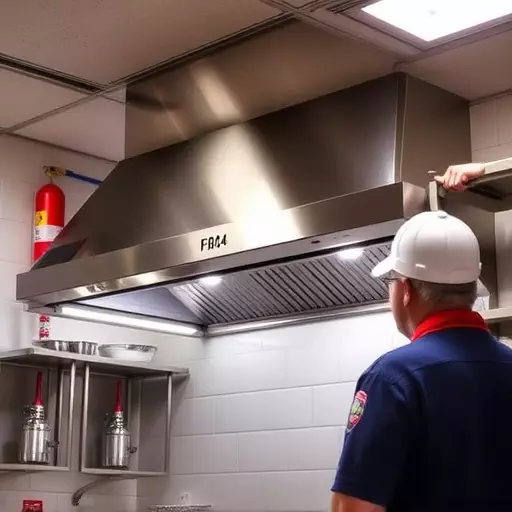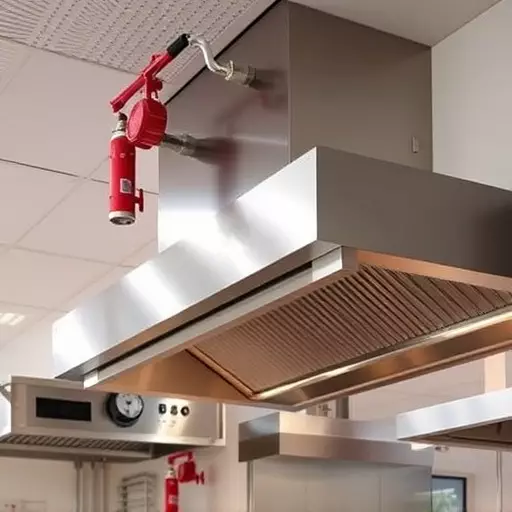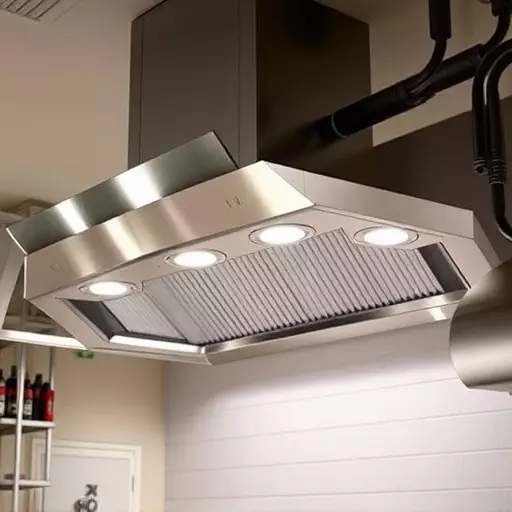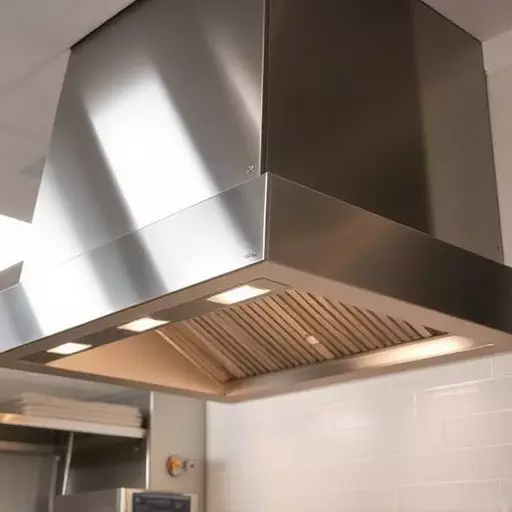In bustling Jacksonville culinary scenes, regular inspections of kitchen suppression systems, focusing on pressure gauge functionality and adherence to local regulations, are paramount for staff and customer safety. Fire suppression compliance checks ensure these systems activate swiftly during emergencies, emphasizing the city's commitment to high safety standards in the food service industry. Regular inspections, including thorough evaluations of critical components like hoods, filters, and sprinklers, maintain system accuracy, foster safer work environments, and prevent costly failures. Common issues such as inaccurate readings, system contamination, and misaligned pressure gauges are addressed through regular calibration checks, component replacements, cleaning, and adherence to industry standards. Staying up-to-date with local fire codes ensures compliance, avoiding fines, and promoting early issue identification for cost-effective maintenance.
In the realm of kitchen safety, ensuring the reliability of your suppression system is paramount. This comprehensive guide delves into the crucial aspect of pressure gauge accuracy checks for kitchen suppression systems in Jacksonville. Understanding the significance of these inspections, we explore the role of fire suppression compliance checks and provide a detailed hood suppression system inspection guide. By addressing common issues and implementing best practices, you can maintain optimal performance, ensuring your kitchen remains a safe and vibrant space.
- Understanding Pressure Gauge Accuracy in Kitchen Suppression Systems
- The Role of Fire Suppression Compliance Checks
- Hood Suppression System Inspection: A Comprehensive Guide
- Common Issues and Solutions During accuracy Checks
- Best Practices for Maintaining Optimal Performance
Understanding Pressure Gauge Accuracy in Kitchen Suppression Systems

In the realm of kitchen safety, particularly in commercial kitchens, understanding pressure gauge accuracy is paramount for efficient and effective fire suppression. A kitchen suppression system, whether it’s a hood or a more comprehensive setup, relies on precise pressure readings to activate and suppress fires swiftly. Regular inspection and maintenance, including pressure gauge accuracy checks, are crucial components of ensuring these systems comply with safety regulations. Jacksonville, known for its bustling culinary scene, emphasizes fire suppression compliance checks as an integral part of kitchen supervision, underscoring the importance of accurate pressure gauge functionality during emergency situations.
During a hood suppression system inspection, professionals carefully calibrate and verify the pressure gauges to guarantee they provide reliable data. This process involves meticulous testing and adjustments to meet the specific requirements of each kitchen setup. Accurate pressure readings are vital because they trigger the suppression system at the right moment, preventing potential hazards and saving lives. By adhering to these strict protocols, Jacksonville’s culinary industry not only maintains high safety standards but also ensures that their kitchen suppression systems operate optimally, fostering a vibrant and secure environment for chefs and patrons alike.
The Role of Fire Suppression Compliance Checks

Fire suppression systems are critical components in commercial kitchens and food service establishments, designed to mitigate the risk of fires and ensure the safety of staff and customers. Regular fire suppression compliance checks and kitchen suppression system inspections in Jacksonville are not just regulatory requirements but essential practices for maintaining these life-saving mechanisms. During these checks, professionals thoroughly evaluate each system’s functionality, including pressure gauges, to guarantee their accuracy and reliability.
The pressure gauge plays a pivotal role in fire suppression systems, monitoring the pressure levels of the agent (like CO2 or water) ready to be deployed in case of a fire. Any deviation from the set parameters could indicate malfunctions or maintenance needs. Routine inspections ensure that these gauges are functioning optimally, enabling quick detection and response during emergencies. This proactive approach not only enhances safety but also aligns with local regulations, as establishments like restaurants and commercial kitchens are subject to regular hood suppression system inspections to maintain compliance and prevent potential hazards.
Hood Suppression System Inspection: A Comprehensive Guide

Regular inspections of your kitchen’s suppression system in Jacksonville are paramount to maintaining fire safety standards and ensuring your establishment complies with local regulations. A comprehensive hood suppression system inspection involves a meticulous evaluation of several critical components. This includes checking for any signs of damage or wear on the hood, filters, and sprinkler heads, as well as verifying proper functionality of the suppression agent release mechanism.
During the inspection process, pay close attention to the ventilation system’s overall integrity. Ensure all ducts are secure, sealed, and free from debris or obstructions that could hinder airflow. Also, inspect the connections between the hood, ducts, and fire suppression controls for any leaks or misalignments. Adhering to a structured inspection protocol will not only maintain your kitchen suppression system’s accuracy but also contribute to a safer working environment and potential cost savings in the long term.
Common Issues and Solutions During accuracy Checks

During accuracy checks of kitchen suppression systems in Jacksonville or hood suppression systems during fire suppression compliance checks, several common issues often arise. One of the most frequent problems is inaccurate readings due to faulty calibration or worn-out sensors. This can be resolved by regular calibration checks and replacement of old or damaged components. Another issue is system contamination, where debris or water ingresses, affecting the gauge’s sensitivity. Thorough cleaning and inspection of the suppression system are required to mitigate this.
Additionally, improper installation or maintenance practices can lead to misalignment of the pressure gauge, resulting in incorrect pressure readings. Ensuring that all installations adhere to industry standards and conducting periodic inspections can help prevent such issues. Regular maintenance and timely repairs not only enhance the accuracy of pressure gauges but also guarantee the safety and efficiency of kitchen suppression systems and hood suppression systems during fire emergencies, aligning with vital fire suppression compliance checks.
Best Practices for Maintaining Optimal Performance

To ensure optimal performance of your kitchen suppression system in Jacksonville, regular inspection and maintenance are paramount. A comprehensive kitchen suppression system inspection should be conducted by certified professionals who understand the nuances of fire suppression compliance checks. This includes thorough evaluation of all components, such as detectors, sprinklers, and control valves, to verify their operational readiness. Regular cleaning and testing are crucial to eliminating any buildup of grease or debris that could compromise the system’s effectiveness during an emergency.
In addition to routine inspections, it’s important to stay up-to-date with local fire codes and regulations related to hood suppression systems. Staying compliant ensures not only the safety of your establishment but also helps avoid potential fines. Regular maintenance checks can help identify issues early on, preventing costly repairs or system failures when they’re most critical. By adhering to these best practices, Jacksonville businesses can maintain a safe kitchen environment and meet fire suppression compliance requirements.


